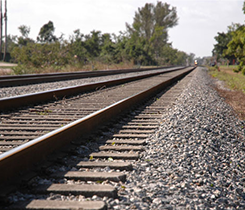Associations, Congress address measures to improve rail safety
Steve Kaminski, president and CEO of the National Propane Gas Association (NPGA), says the February train derailment in East Palestine, Ohio, hasn’t impacted the propane industry specifically, but he acknowledged a renewed emphasis on rail safety across the country.
The American Association of Railroads (AAR), an NPGA partner, proposed modifications to the rail system. The list of safety measures includes the installation of additional hot bearing detectors, expanded support for first responders and tank car improvements.
Congressional leaders in the House and Senate also introduced legislation that aims to ensure safety on the nation’s railroads. This includes enhancing procedures for trains carrying hazardous materials, strengthening regulations to prevent wheel bearing failures and increasing maximum penalties for violations of rail safety regulations.
Even with the recent actions on safety, the accident rate for hazardous material transportation is down 78 percent since 2000, reports AAR, a railroad policy, research, standard setting and technology organization that focuses on the safety and productivity of the U.S. freight rail industry. In addition, mainline accidents are down 44 percent in that same period, reaching an all-time low in 2022.
Kaminski says NPGA is committed to working with industry partners, regulators and Congress to ensure customers receive propane deliveries in a safe and timely manner.
Prior to the renewed focus on rail safety, concern about the stability of the rail networks grew last year amid a labor dispute between the nation’s freight railroads and their union workers. However, Congress took measures to prevent a strike. With the rail carriers transporting one-third of the propane gallons consumed in the U.S., any disruption in rail service would have had significant consequences for the industry and consumers, according to NPGA.
The association worked with organizations to educate stakeholders on the importance of propane distribution by rail.

















